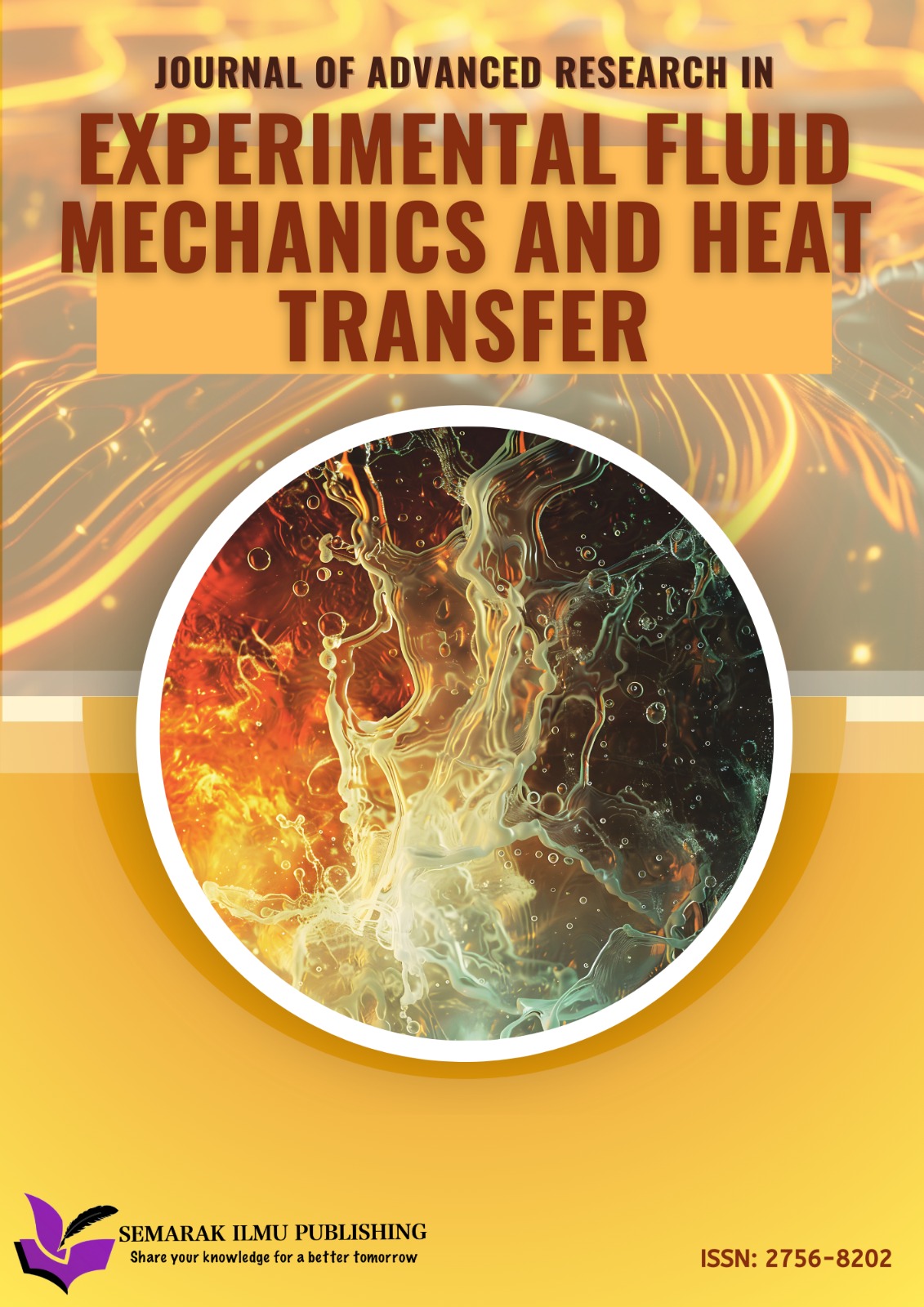Thermal Behaviour of Nanocomposite Phase Change Material for Solar Thermal Applications
DOI:
https://doi.org/10.37934/arfmts.88.2.133146Keywords:
Thermal Energy Storage, Phase Change Material, Nanocomposite, Solar Thermal CollectorAbstract
The use of solar thermal technologies has shown great prospects towards solar energy conversion into more useful forms of energy and has increasingly expanded solar thermal technology applications. However, the inability to properly store the excess solar energies during peak hours and demands have limited many of their applications. The integration of thermal energy storage (TES) systems with thermal technologies have increased the solar thermal technology performance but the poor thermal characteristics exhibited by phase change materials (PCM) limited the system overall performance. The enhancement of PCM properties by nonadditive have shown increased material performance in TES application and thereby extending the use of solar thermal technology application. Given this narrative and identifies literature gaps, the present study investigated experimentally the enhancement of paraffin PCM using nonadditive metallic of different types and concentrations and analysed their thermal behaviours. The results showed that Cu/paraffin PCM nanocomposites had good thermal reliability in proposed applications even after 150 thermal cycles under different temperatures. Moreover, thermal conductivity was improved significantly as an enhancement of 39% was reported when adding 2.5% of Cu nanoparticles. While specific heat and thermal diffusivity has been enhanced by 16% and 9%, respectively compared to pure paraffin. The obtained results were compared with different theoretical models such as Maxwell mode, Hamilton Crossover model, Jeffery model, and Bruggeman model. The calculated values show a good agreement with experimental ones. As a result, the prepared Cu/Paraffin nanocomposite PCM shows significant promise in thermal energy storage application due to its favourable phase change temperature, comparatively large latent heat, enhanced thermal conductivity and high thermal reliability and conversion. The proposed nanocomposite PCM can be used in many applications such as building materials to reduce interior temperature swings, enhance thermal comfort, and conserve electricity consumption.
Downloads






























